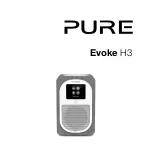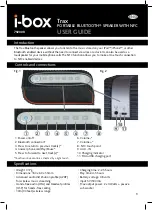
TE5251
User Manual
4-4
SCPI is an ASCII-based instrument command language designed
for test and measurement instruments. SCPI commands are based
on a hierarchical structure known as a tree system. In this system,
associated commands are grouped together under a common node
or root, thus forming subsystems.
Part of the OUTPut subsystem is shown below to illustrate the tree
system:
:
OUTPut
:FILTer
[:LPASs] {NONE|25M|50M|ALL}
[:STATe] OFF | ON
OUTPut is the root keyword of the command; FILTer and STATe
are second level keywords. LPASs is third level keyword. A colon ( :
) separates a command keyword from a lower level keyword.
Command Format
The format used to show commands in this manual is shown below:
FREQuency
{<frequency>|MINimum|MAXimum}
The command syntax shows most commands (and some
parameters) as a mixture of upper and lowercase letters. The
uppercase letters indicate the abbreviated spelling for the
command. For shorter program lines, send the abbreviated form.
For better program readability, use the long form.
For example, in the above syntax statement, FREQ and
FREQUENCY are both acceptable forms. Use upper or lowercase
letters. Therefore, FREQ, FREQUENCY, freq, and Freq are all
acceptable. Other forms such as FRE and FREQUEN will generate
an error.
The above syntax statement shows the frequency parameter
enclosed in triangular brackets. The brackets are not sent with the
command string. A value for the frequency parameter (such as
"FREQ 50e+6”) must be specified.
Some parameters are enclosed in square brackets ([]). The
brackets indicate that the parameter is optional and can be omitted.
The brackets are not sent with the command string.
Command
Separator
A colon ( : ) is used to separate a command keyword from a lower
level keyword as shown below:
SOUR:FUNC:SHAP
SIN
A semicolon ( ; ) is used to separate commands within the same
subsystem, and can also minimize typing. For example, sending the
following command string:
TRIG:SLOP NEG;COUN 10;LEV -1
Summary of Contents for 5251
Page 17: ...List of Figures continued xiv...
Page 35: ...TE5251 User Manual 1 18 This page was intentionally left blank...
Page 37: ...TE5251 User Manual 2 2...
Page 134: ...TE5251 User Manual 3 82 Figure 3 62 Log File Example...
Page 222: ...TE5251 User Manual 4 88 This page was left intentionally blank...
Page 258: ...TE5251 User Manual 5 36 This page was intentionally left blank...
Page 288: ...TE5251 User Manual 6 30 This page was intentionally left blank...
Page 289: ...1 Appendices Appendix Title Page A Specifications A 1...
Page 290: ...TE5251 User Manual 2...
















































